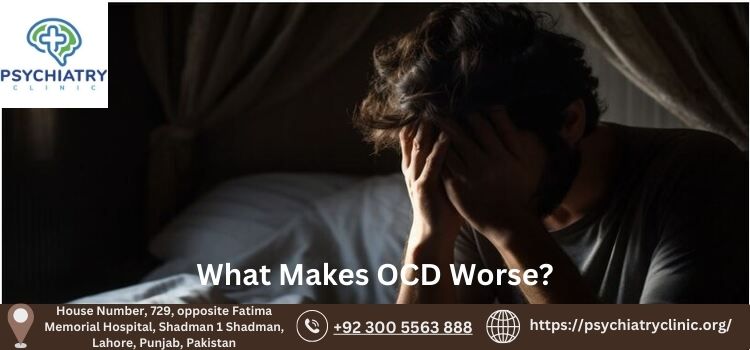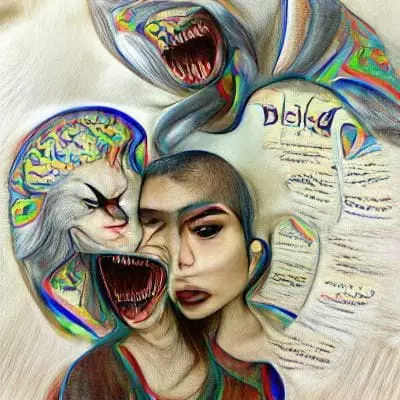What is Psychiatry?
WHAT IS PSYCHIATRY?
The study, diagnosis, and treatment of mental health issues are all part of the field of medicine known as psychiatry. The scope of psychiatry is prevention and treatment of mental, emotional and behavioral disorders. A person’s mental health is influenced by a number of variables.
These are related to interactions with society, the community, and family as well as aspects that are personal to the individual. A strong sense of self-worth, effective communication, and the development of resilience are just a few elements of mental health.
Psychiatry is one of the oldest medical specialties, but since the development of neuroscience, the area has advanced greatly. The Diagnostic and Statistical Manual of Mental Health Illnesses, in its different versions, contains standardized standards for diagnosing and treating mental health disorders.
There are several reasons why people go for psychiatric assistance. Sudden difficulties can include panic attacks, anxiety disorder, bipolar disorder, mental disorder terrifying hallucinations, suicidal thoughts, or hearing “voices.” Or they could be more enduring, such as depressive, hopeless, or anxious sensations the seem to go away, or functional issues that make daily life seem chaotic or out of control.
Psychiatric sub-specialties
Sub-specialties in the field of Psychiatry are
- Adolescent and child psychiatry
- Geriatric psychiatry
- Psychiatry of Addiction
- Forensic Psychiatry
- Organic Psychiatry
- Neuro Psychiatry
Training Program for a Psychiatric doctor
A Psychiatrist must take four years of psychiatry residency after graduating from medical school, pass a written test to obtain a state license to practice medicine, and then become a psychiatrist. Typically, the first year of residency training is spent working with patients who seem to have a range of illnesses and symptoms in a hospital setting.
The psychiatrist-in-training then devotes at least a further three years to learning how and when to diagnose and treat mental illnesses, including using different types of psychotherapy, psychiatric drugs, and other treatments. Inpatient, outpatient, and emergency room settings are used for training.
A psychiatrist meaning is a medical professional who specializes on mental health, especially substance use illnesses. Psychiatrists are trained to evaluate psychological issues from both the mental and physical perspectives.
What is the Scope of Psychiatric Work?
Psychiatrists work in general and psychiatric hospitals, university medical centers, community organizations, courts and prisons, nursing homes, businesses, government agencies, and military settings. They also work in emergency rooms, rehabilitation programs, and hospice services.
The psychiatrist gets a thorough awareness of bodily processes throughout this period, as well as the connections between mental and physical health. Separating psychological from physical reasons of distress is another skill the future psychiatrist learns.
What are the common Psychiatry Illnesses?
Common mental illnesses are
- Depression
- anxiety disorders
- personality disorders
- post-traumatic stress disorder
- Bipolar illness
- Schizophrenia
- Addiction
- Sleep disorders
- Sexual Disorders
- Somatic Symptoms disorders
- Conversion Disorder
Mental disorders in children and elderly are in addition to above common mental disorders list.
Depression is one of the most common psychiatric disorders all over the world. It is among top 5 diseases of all medical specialties that have maximum global disease burden.
The prevalence of depression in general population varies from 5% to 20%. This is very huge number. Search queries for ‘’psychiatric near me’’ have increased significantly in recent years
Similarly, the prevalence of bipolar and schizophrenia combined is 1.5% to 2.8%.
What is the Role of a Psychiatrist?
As medical doctors, psychiatrists are able to order or administer the full spectrum of medical complex and psychological tests, which, when combined with patient consultations, assist paint a picture of a patient’s physical and mental condition.
Their expertise and education enable them to diagnose patients, engage with patients to build treatment programs. They also comprehend the connections between genetics and environmental factors. This is in addition to the complicated interconnections between emotional and other medical problems.
What are the qualities of a good Psychiatrist?
It is very important to consult some top psychiatrist in Lahore or nearby your area. Just to grab an idea, here are some characteristics of a good psychiatrist
- Confident diagnosis; psychiatric illnesses have a wide range of symptoms. Practically there is not laboratory test. A skilled psychiatry incorporates all the information to make a confident diagnosis
- Minimum use of Medicine; most of the psychiatric symptoms can be relived with single medicine
- Use of bio psycho social model
- Give sufficient time to discuss
- Non judgmental
What is difference between psychiatrist and psychologist?
Psychiatrist and psychologist difference is very important to understand. A psychiatrist is a medical doctor who specializes in the field of psychiatry. His main work is to diagnose the psychiatric illness and differentiate symptoms from that of medical illness. He provides treatment in the form of medicines and counseling
Psychologists are mental health professional whose qualifications are master in clinical psychology. They provide counseling and advanced psychotherapy
What are Common treatment options in psychiatry?
Psychiatrists utilize a range of treatments, based on the needs of each patient. These include different types of psychotherapy, medicines, and psychosocial interventions, other treatments are electroconvulsive therapy (ECT) and rTMS
What is Psychotherapy?
Psychotherapy is often known as talk therapy. It is a form of care that involves a dialogue between the patient and the therapist. It is effective in treating a wide range of mental diseases and emotional problems.
In order for the patient to function better, psychotherapy aims to reduce or manage distressing or incapacitating symptoms. Treatment may require a few sessions spread out over a week or two, depending on the severity of the issue, or it may require numerous sessions spread out over years.
Common types of Psychological interventions are;
- Family therapy
- Group counseling
- Cognitive behavior therapy
- Cognitive analytical therapy
- Couple therapy
- Interpersonal therapy
- Psychodynamic Therapy
What is the role of Medicine?
Psychiatrists utilize most drugs in the same manner as doctors use medications to treat high blood pressure or diabetes. Psychiatrists can prescribe drugs to assist treat mental problems after extensive exams.
While the full mechanism of action of psychiatric drugs is unknown, they may benefit chemical signaling and communication inside the brain, thus reducing most symptoms of psychiatric disorders.
Types of Psychotropic Medicines
Patients on long-term medication treatment will need to consult with their psychiatrist on a regular basis to assess the medicine’s effectiveness and any potential side effects.
- Antidepressants are used to treat eating disorders, borderline personality disorder, panic disorder, PTSD, anxiety disorder, obsessive-compulsive disorder, and depression.
- Antipsychotic medicines are used to treat schizophrenia, bipolar disorder, and psychotic symptoms (delusions and hallucinations).
- Anxiolytics and sedatives are used to treat insomnia and anxiety.
- Hypnotic drugs are used to start and keep people asleep.
- Bipolar disorder is treated with mood stabilizers.
- ADHD is treated with stimulants.
Setting of treatment
Setting for treatment of mental illness can be doctor clinic and a psychiatric hospital. Community bases treatment options are also available in many countries. In community based treatment, the mental health professionals’ teams visit communities.
They provide their services at patients’ home. People who are admitted to a hospital or psychiatry clinic for psychiatric treatment are known as inpatients. It all depends upon type of mental illness, severity of mental illness and available resources.
What is tele-Psychiatry?
Tele psychiatry is to provide mental health care through the use of technology. This can be video a consultation. In psychiatry, you can consult a good psychiatrist or psychiatrist online. You can also book appointments online.
Although tele psychiatry is not a substitute for physical contact sessions, it is very helpful where psychiatric clinics or services not available.
Treatment against the will of Patient
Some people are accepted against their will. They are admitted to a secure mental hospital. A facility inside a prison is also available for psychiatric patients involved in crime.
The requirements for involuntary admittance differ depending on the local government rules and regulations. They could be as general as having a mental illness or as specific as being a direct threat to oneself or someone. The actual factor influencing admission decisions to overcrowded public facilities is the availability of beds.
When to admit the patient against his will?
Treatment that is administered based solely on a treating physician’s recommendations and without the patient’s agreement is referred to as involuntary treatment. If the treating physician believes that safety is not jeopardized by this less stringent option, patients may be hospitalized voluntarily.
There has been debate concerning the use of involuntary therapy and the use of use of medicines. Involuntary psychiatric treatment is frequently approved when there is thought to be a severe risk to the patient or others. Mental health laws around the world differ significantly.
For patients who are deemed to be particularly at risk of violence or self-harm, inpatient psychiatric hospital admission is required. These can be secure or open. Same-sex wards are increasingly preferred to protect female patients. Some wards are mixed-sex.
Role of a multidisciplinary team
Once under a hospital’s care, a multidisciplinary team assesses, monitors, and frequently provides medication and care to patients. A multidisciplinary team consists of psychiatrists, pharmacists, psychiatric nurse practitioners, psychiatric nurses, clinical psychologists, psychotherapists, psychiatric social workers, occupational therapists, and social workers.
If a mental health facility patient is determined to be very likely to hurt himself or others, they may be subjected to ongoing or infrequent one-on-one surveillance. This is in addition to physical restraints or medication. Patients in inpatient wards can take periodic leaves of time.
Community Treatment Options
With the rise of community treatment in many affluent countries, mental beds have been in a huge decline since the mid-twentieth century. Standards of inpatient care continue to be a concern in some public and commercial facilities due to budget limitations, and facilities in underdeveloped countries are often chronically inadequate for the same reason.
Even in industrialized countries, programs in public hospitals differ greatly. Some may provide scheduled activities and therapies from various perspectives, whereas others may merely provide financing for medication and patient monitoring.
This may be problematic in that the maximal amount of therapeutic work may not take place in the hospital setting. As a result, hospitals are increasingly being employed in limited settings and times of crisis where patients are present.
Other treatments that psychiatrists can prescribe include:
Electroshock therapy.
Electrical currents are applied to the brain during electroconvulsive treatment. When no other treatments are effective for severe depression or bipolar illness, a psychiatrist may consider ECT.
Brain stimulation in other forms
Transcranial magnetic stimulation (TMS) and vague nerve stimulation (VNS) can both help alleviate severe depressive symptoms. TMS uses a coil on your head to transmit magnetic pulses to your brain. A generator implanted in your chest, just under your skin, sends continuous electrical pulses to your vague nerve using VNS.
Therapy using light
This method involves the use of artificial light to alleviate depression symptoms. It’s frequently prescribed for seasonal depression, especially if you live somewhere that doesn’t receive much sunlight.
Psychiatrists and psychologists both play vital roles in mental health care and therapy, however, they approach diagnosis and treatment differently.
A best psychologist in Lahore or concerned area may assist you in addressing symptoms through therapy and coping techniques, whereas a psychiatrist may prescribe medication and other treatments to alleviate your symptoms.
Not sure what kind of help you require?
Either specialist can assist you in studying the problems you’ve experienced and their potential causes. He can also assist you in taking actions toward alleviation — whether that means offering treatment themselves or sending you to someone who can provide more effective support.
Author: Dr Farasat Ali
CEO Psychiatry Clinic
Lahore, Pakistan
Social Media
Related

ڈپریشن کیا ہے؟ اس کی علامات، وجوہات اور علاج

Your Guide to Insomnia Treatment

What Makes OCD Worse? Comprehensive Guide

What is Schizophrenia?
Subscribe To Our Newsletter To Get updates.
One thought on “What is Psychiatry?”
-
Excellent
Comments are closed.


One thought on “What is Psychiatry?”
Excellent
Comments are closed.